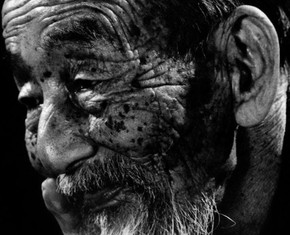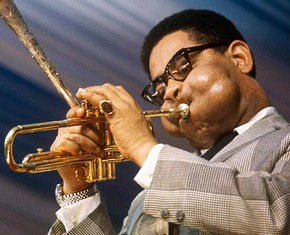The views expressed in our content reflect individual perspectives and do not represent the authoritative views of the Baha'i Faith.
What is the purpose of human life? How can one understand its mysteries? What is the ultimate destiny of the soul on earth and in the worlds beyond?
We are surrounded by all sorts of theories, ideas, and beliefs about these questions from scientists, philosophers, religious practitioners, and others. Often, they do not satisfy our thirst or may even leave us more confused.
In the words and actions of Abdu’l-Baha, one of the Central Figures of the Baha’i Faith, however, I have found harmony between spiritual, logical, and scientific wisdom, which has increased my insight on these subjects. For example, as a physician, I have learned from him that there are both medical and spiritual elements to be considered in the healing process. Abdu’l-Baha also not only spoke about, but also demonstrated through the way he lived, how one can cultivate and reap the choicest fruits of life.
RELATED: Abdu’l-Baha’s Superhuman Knowledge
Born in 1844, Abdu’l-Baha was the eldest son of Baha’u’llah, prophet and founder of the Baha’i Faith. After Baha’u’llah’s passing in 1892, Abdu’l-Baha became his father’s successor and the authorized interpreter of his writings. Abdu’l-Baha, who passed away in 1921, spent the earliest years of his life — four decades — in prison for being a Baha’i. Despite such suffering, he was known for his service to humanity, his dedication to gender equality, and, when he traveled to Europe and North America, for championing peace and racial justice.
In his book “The World Order of Baha’u’llah,” Shoghi Effendi, the Guardian of the Baha’i Faith, wrote of the attributes of Abdu’l-Baha and shared the lofty titles and appellations that Baha’u’llah, in his sacred writings and tablets, used to praise and extoll Abdu’l-Baha’s rank and station: the “Center of the Covenant,” “the perfect Exemplar,” “the Mystery of God,” “the embodiment of every Bahá’í ideal,” “the Most Mighty Branch,” and “the Moon of the Central Orb of this most holy Dispensation.”
However, contrary to what one might expect to be reflected in an individual so titled, Abdu’l-Baha’s life and character were vivid expressions of his exemplary humility, simplicity, and servitude.
In his book, “The Revelation of Baha’u’llah, Vol. 3,” author Adib Taherzadeh wrote of Abdu’l-Baha: “The only station that He retained for Himself was that of the appointed Interpreter of the Writings of Baha’u’llah. And this He did so that if a person ever sought to glorify His station by referring to the many exalted titles by which Baha’u’llah had designated Him, He then would merely say, ‘I am the Interpreter of the Words of God and my interpretation of all these designations is Abdu’l-Baha (Servant of Baha’u’llah).’”
According to Shoghi Effendi, these exalted titles and this profuse praise conferred upon Abdu’l-Baha by Baha’u’llah were never meant to be construed as meaning that Abdu’l-Baha was the recipient of a station “identical with, or equivalent to, that of His Father, the Manifestation Himself.”
In fact, Abdu’l-Baha himself commented in writing on the Tablet of the Branch (by Baha’u’llah): “I affirm that the true meaning, the real significance, the innermost secret of these verses, of these very words, is my own servitude to the sacred Threshold of the Abha Beauty, my complete self-effacement, my utter nothingness before Him. This is my resplendent crown, my most precious adorning…No one is permitted…to give these verses any other interpretation.”
During the ministry of Abdu’l-Baha, some Baha’is, in their eagerness to honor him, equated his station to that of Baha’u’llah and the Bab — the forerunner of Baha’u’llah and the founder of the Babi Faith — or even superior to that of the Bab. Abdu’l-Baha promptly refuted such a mistaken glorification and frequently warned the Baha’is against making such claims.
He clearly stated: “This is my firm, my unshakeable conviction, the essence of my unconcealed and explicit belief…My station is the station of servitude – a servitude which is complete, pure and real…”
The unfortunate consequence of exaggerating the station of Abdu’l-Baha created confusion on this matter which unwittingly played into the hand of people who persecuted Baha’is. Taking advantage of this confusion, they maliciously alleged that Abdu’l-Baha was claiming prophethood.
In his book “The Covenant of Baha’u’llah,” Adib Taherzadeh wrote about how Abdu’l-Baha clarified the matter simply and eloquently. Abdu’l-Baha explained that there are three stations in the world of creation, the highest one being the station of God which is beyond our comprehension. The second is the station of the Manifestation of God which is also unapproachable. The third one is the station of servitude, the most praiseworthy station to which human beings may attain. When a man dwells in this station, he grows closer to God and becomes the recipient of grace and bounty.
RELATED: When Abdu’l-Baha Left This World
This longing for servitude and expression of humility, despite all the praise and lofty titles conferred upon him by Baha’u’llah, can clearly be discerned when we read the Will and Testament of the Abdu’l-Baha in which he explains, “This is the foundation of the belief of the people of Baha…His Holiness the Exalted one (the Bab) is the Manifestation of the Unity and Oneness of God and the Forerunner of the Ancient Beauty. His Holiness the Abha Beauty (may my life be a sacrifice for His steadfast friends) is the Supreme Manifestation of God and the Dayspring of His Most Divine Essence. All others are servants unto Him and do His bidding.”
This passage explicitly defines the role of believers, including Abdu’l-Baha, in relation to the two Prophets of God in the Baha’i Faith.
















Comments
Sign in or create an account
Continue with Googleor